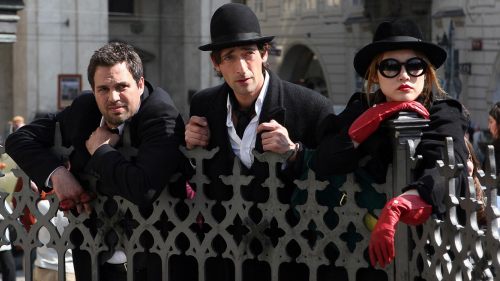TCFF Review: THE FAVOURITE Is A Comedy Of Shifting Sympathies
This review is coverage for Twin Cities Film Fest.
I have a confession: I’ve never really been sold on the appeal of Yorgos Lanthimos. I find the cynicism of The Lobster and The Killing of a Sacred Deer misplaced and, though occasionally witty, I find his stilted direction more alienating than stimulatingly commentative. I get the appeal of his work, but I’d largely written off this particular auteur as something just categorically Not For Me. But then the trailer for The Favourite dropped, and I saw something that intrigued me in Lanthimos’ latest. I saw his particular vicious talents put to use on appropriate targets, not the romantically inclined or the familially domestic, but the wealthy and powerful, and I was drawn to the sense that Lanthimos might finally have something to say that extended beyond the roots of his loyal fandom. In that, my friends, The Favourite does not disappoint, as Yorgos Lanthimos has crafted a wholly unique take on the nature of power and how our sympathies are dependent on it, not because power is itself alienating, but because power is in fact the source of evil.
Set in the palace of eighteenth-century monarch Queen Anne (Olivia Colman), The Favourite paints a picture of Anne’s chief confidante, Lady Sarah (Rachel Weisz), as the true manipulator behind the throne, using friendship and sexual attraction to maneuver Anne into perpetuating their war with France. Anne suffers from mental illness brought on by the loss of her many children to stillbirth and disease, and chronic pain from gout keeps her mind clouded and in need of distraction so that Sarah need not bother too hard to achieve her ends, much to the chagrin of the opposition leader in Parliament (Nicholas Hoult). Enter Abigail (Emma Stone), a former lady whose family has fallen on financial hardship and seeks a place as a maid in Queen Anne’s home. Through endearing herself to Sarah, Abigail earns a spot as Sarah’s personal attendant, but Abigail’s ambition extends to the queen herself, and only Sarah stands in her way.
Perhaps because Lanthimos did not write The Favourite’s screenplay – Deborah Davis and Tony McNamara hold that distinction – the vulgarity and faux formalism that characterize Lanthimos’ other work is put to clever use in the mouths of English nobility, highlighting their duplicity while emphasizing their hunger for power in dialogue that is hilarious for its frankness. Abigail is at first a sympathetic figure who we want to see succeed against the clearly maleficent Lady Sarah, because Sarah holds all the cards and Abigail has been a perpetual victim of circumstances beyond her control. However, in seizing control, Abigail slowly but surely transforms into a villain in her own right, and as power is stripped away from Sarah by clawful measures we come to realize that though her love for Anne is used to manipulative ends, that love is in fact genuine, real, and not mutually exclusive of her selfish goals. The protagonist of the tale shifts imperceptibly under the sands of the film’s eight act structure; the only constant is that those who hold the most power are those most worthy of our scorn. The ironic exception, of course, is Queen Anne, who is the figurehead through which all decision-making must pass but is pitiable her for weakness and the people who would hold her in that state for their own ends.
This is propped up by a trio of nuanced lead performances from Weisz, Stone, and Colman. Weisz plays the role of the cold-blooded serpent whispering into Anne’s ear with aplomb, but the unraveling layers of her affections don’t require a radical change in personality, only the context in which we see her convey those affections. Stone, meanwhile, plays the innocent, put-upon waif with more mind than anyone suspects, but as her position raises and her power grows, the façade crumbles away to reveal that Abigail is no better than any of the vipers whose nest she is infiltrating, and Stone is uncannily fluid in that external transformation. And though she might easily be seen as the supporting player in a war between two women who aim to manipulate her character’s elastic personality, Colman reveals Anne as a heartbreakingly complex character in her own right in the film’s final acts, demonstrating a lonely and power-weary core to a woman emotionally stunted by her birthright. All three actresses are pushing the limits of their sizeable abilities with these roles, and every one of them nails it.
The Favourite delivers on the promise that Lanthimos’ other work never quite fulfills. By aiming his sardonic take on masked human nature at characters and a setting that emphasizes manipulation, Lanthimos has finally made a film that feels less idiosyncratic than insightful. Lanthimos loyalists need not worry, for there is still plenty of the auteur’s dry wit and uncensored bitterness oozing in the beautifully shot and scored trappings of his period piece. But now it feels invested with purpose, and we come away understanding a bit more about human nature as he bridges the gap between alien detachment and human sympathies.



